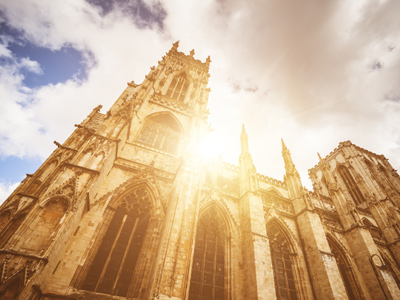

Christianity - Worship: Where and How
This GCSE RE quiz takes a look at where and how Christians worship. Christianity covers such a length and breadth of traditions, that there are almost infinite variations and gradations in where and how different denominations set about their worship.
It seems naturally reasonable that a group of believers who share their faith will wish, at least sometimes and probably regularly, to meet and celebrate it, and to evolve forms of words &/or gestures &/or music through which to do this in an agreedly effective and atmospheric fashion. From the early disciples and apostles in the Upper Room, to the vast open-air services held (for instance) when the Pope goes on tour, to the sharing of thoughts and prayers through broadcast media and the Web, worship has developed in many forms and guises.
Please note that we offer a separate quiz elsewhere which begins unpacking Christian beliefs through the Creeds.
This leaves us with answer 3, which is broadly and traditionally true ... and nobody's likely to start turning-round the entire outer shells of substantial existing church buildings, in the name of liturgical precision!
All through the summer (after Trinity and well into the autumn) the default colour is usually green; there are also white, red and blue, and rather occasionally other possibilities. Blue/violet is for penitential and preparatory seasons (Advent before Christmas; Lent before Easter); white represents innocence (the birth at Christmas; festivals involving the Spirit, such as non-martyred saints and the conversion of Paul); which of the following is NOT a liturgical significance of red?
... Well, if you were hoping to 'sing along', there could be plenty of good reasons why you may not find one. Which of these would you consider the saddest, or weakest?
This present space is probably not the appropriate forum to do any more than raise the observation that any church, as a living entity, is bound to move on in the way it articulates its traditions (it would otherwise be unhealthy!); hence it does need to ask itself occasional quite painful questions about its purpose, its style and its infrastructure ... which more or less brings us back to the overall point of the present quiz!
Ready for more?
not all...
quizzers. Try to win a coveted spot on our Hall of Fame Page.






